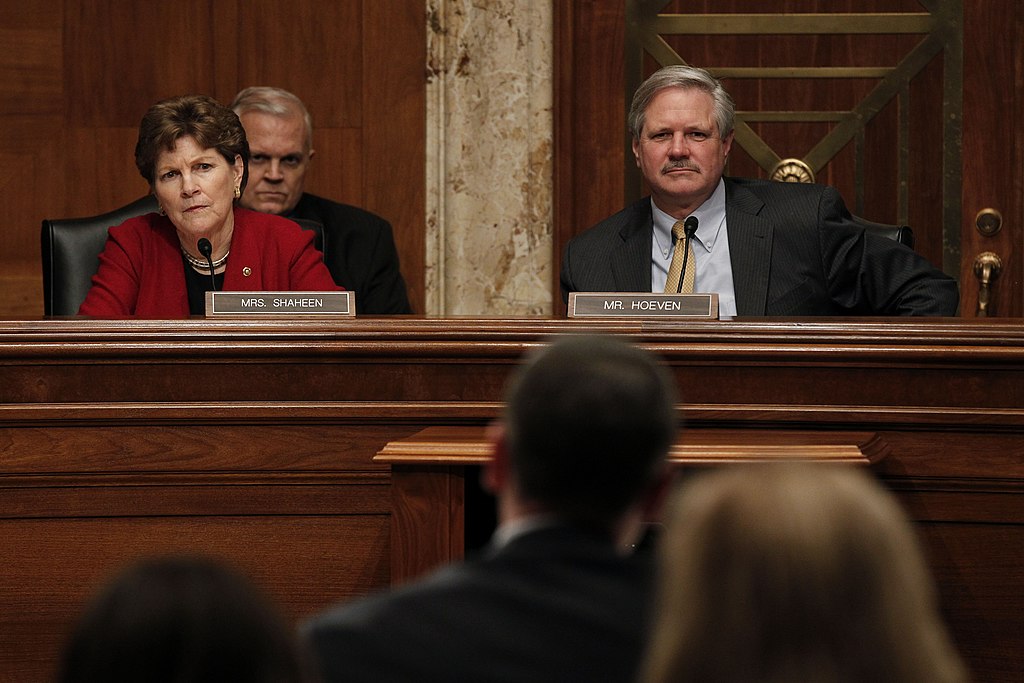Two U.S. senators are calling for increased funding and staffing for the Federal Aviation Administration (FAA) following a tragic midair collision near Washington Reagan National Airport. The January 29 accident, involving an American Airlines regional jet and a U.S. Army helicopter, claimed 67 lives, marking the deadliest U.S. aviation disaster in over two decades.
In a letter first reported by Reuters, Senators Jeanne Shaheen (D) and John Hoeven (R) urged the FAA to collaborate with Congress to modernize facilities, enhance equipment, and expand training capacity. They emphasized the urgent need to address the persistent shortage of air traffic controllers, noting the FAA is 3,500 controllers below its target. Reagan National’s tower, for instance, has only 25 fully certified controllers instead of the required 30.
The senators highlighted the excessive workloads many controllers face, often working six-day weeks and ten-hour shifts, increasing fatigue and stress. "We must reinforce our workforce to prevent further tragedies," they stated.
U.S. Transportation Secretary Sean Duffy acknowledged the FAA’s outdated technology and announced plans to enhance air traffic control training and hiring efforts. He is also considering incentives to retain retirement-eligible controllers and possibly extending the mandatory retirement age of 56.
Before the crash, air traffic control supervisors had consolidated positions for helicopters and aircraft. Duffy now intends to reverse this policy to ensure proper staffing levels in control towers.
The FAA has yet to respond to the senators' call for action. As air traffic continues to grow, lawmakers stress that addressing these critical safety issues is essential to ensuring passenger safety and preventing future accidents.



 Minnesota Judge Rejects Bid to Halt Trump Immigration Enforcement in Minneapolis
Minnesota Judge Rejects Bid to Halt Trump Immigration Enforcement in Minneapolis  ICE Blocked From Entering Ecuador Consulate in Minneapolis During Immigration Operation
ICE Blocked From Entering Ecuador Consulate in Minneapolis During Immigration Operation  Ukraine-Russia Talks Yield Major POW Swap as U.S. Pushes for Path to Peace
Ukraine-Russia Talks Yield Major POW Swap as U.S. Pushes for Path to Peace  Iran–U.S. Nuclear Talks in Oman Face Major Hurdles Amid Rising Regional Tensions
Iran–U.S. Nuclear Talks in Oman Face Major Hurdles Amid Rising Regional Tensions  Newly Released DOJ Epstein Files Expose High-Profile Connections Across Politics and Business
Newly Released DOJ Epstein Files Expose High-Profile Connections Across Politics and Business  Trump Lifts 25% Tariff on Indian Goods in Strategic U.S.–India Trade and Energy Deal
Trump Lifts 25% Tariff on Indian Goods in Strategic U.S.–India Trade and Energy Deal  Panama Supreme Court Voids Hong Kong Firm’s Panama Canal Port Contracts Over Constitutional Violations
Panama Supreme Court Voids Hong Kong Firm’s Panama Canal Port Contracts Over Constitutional Violations  Trump Says “Very Good Talks” Underway on Russia-Ukraine War as Peace Efforts Continue
Trump Says “Very Good Talks” Underway on Russia-Ukraine War as Peace Efforts Continue  Pentagon and Anthropic Clash Over AI Safeguards in National Security Use
Pentagon and Anthropic Clash Over AI Safeguards in National Security Use  U.S. to Begin Paying UN Dues as Financial Crisis Spurs Push for Reforms
U.S. to Begin Paying UN Dues as Financial Crisis Spurs Push for Reforms  Trump Family Files $10 Billion Lawsuit Over IRS Tax Disclosure
Trump Family Files $10 Billion Lawsuit Over IRS Tax Disclosure  U.S. Lawmakers to Review Unredacted Jeffrey Epstein DOJ Files Starting Monday
U.S. Lawmakers to Review Unredacted Jeffrey Epstein DOJ Files Starting Monday  Trump Rejects Putin’s New START Extension Offer, Raising Fears of a New Nuclear Arms Race
Trump Rejects Putin’s New START Extension Offer, Raising Fears of a New Nuclear Arms Race  China Approves First Import Batch of Nvidia H200 AI Chips Amid Strategic Shift
China Approves First Import Batch of Nvidia H200 AI Chips Amid Strategic Shift  Paul Atkins Emphasizes Global Regulatory Cooperation at Fintech Conference
Paul Atkins Emphasizes Global Regulatory Cooperation at Fintech Conference  Trump Threatens 50% Tariff on Canadian Aircraft Amid Escalating U.S.-Canada Trade Dispute
Trump Threatens 50% Tariff on Canadian Aircraft Amid Escalating U.S.-Canada Trade Dispute  U.S. Justice Department Removes DHS Lawyer After Blunt Remarks in Minnesota Immigration Court
U.S. Justice Department Removes DHS Lawyer After Blunt Remarks in Minnesota Immigration Court 


























